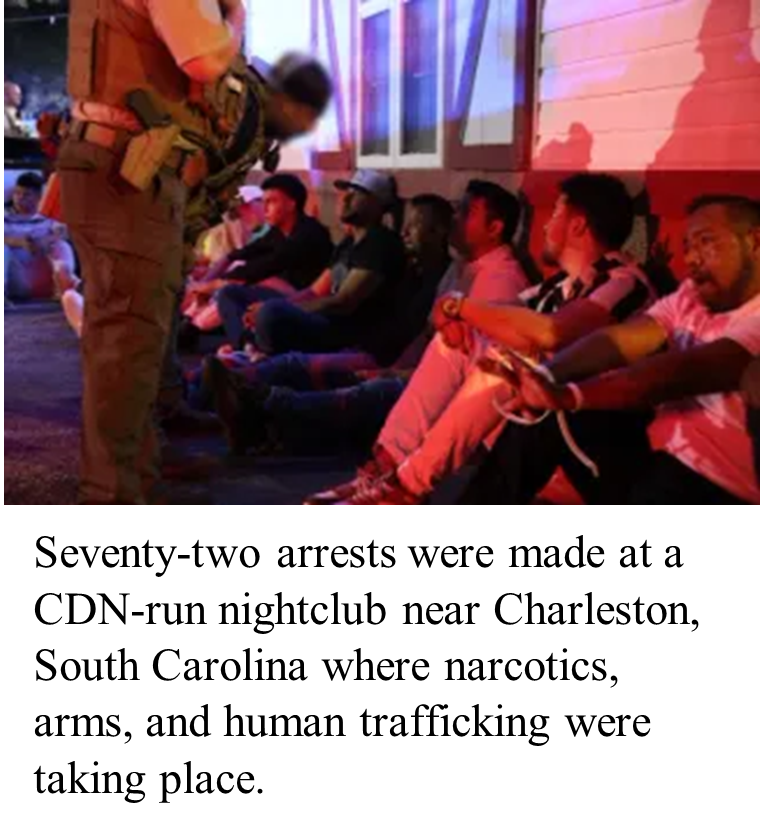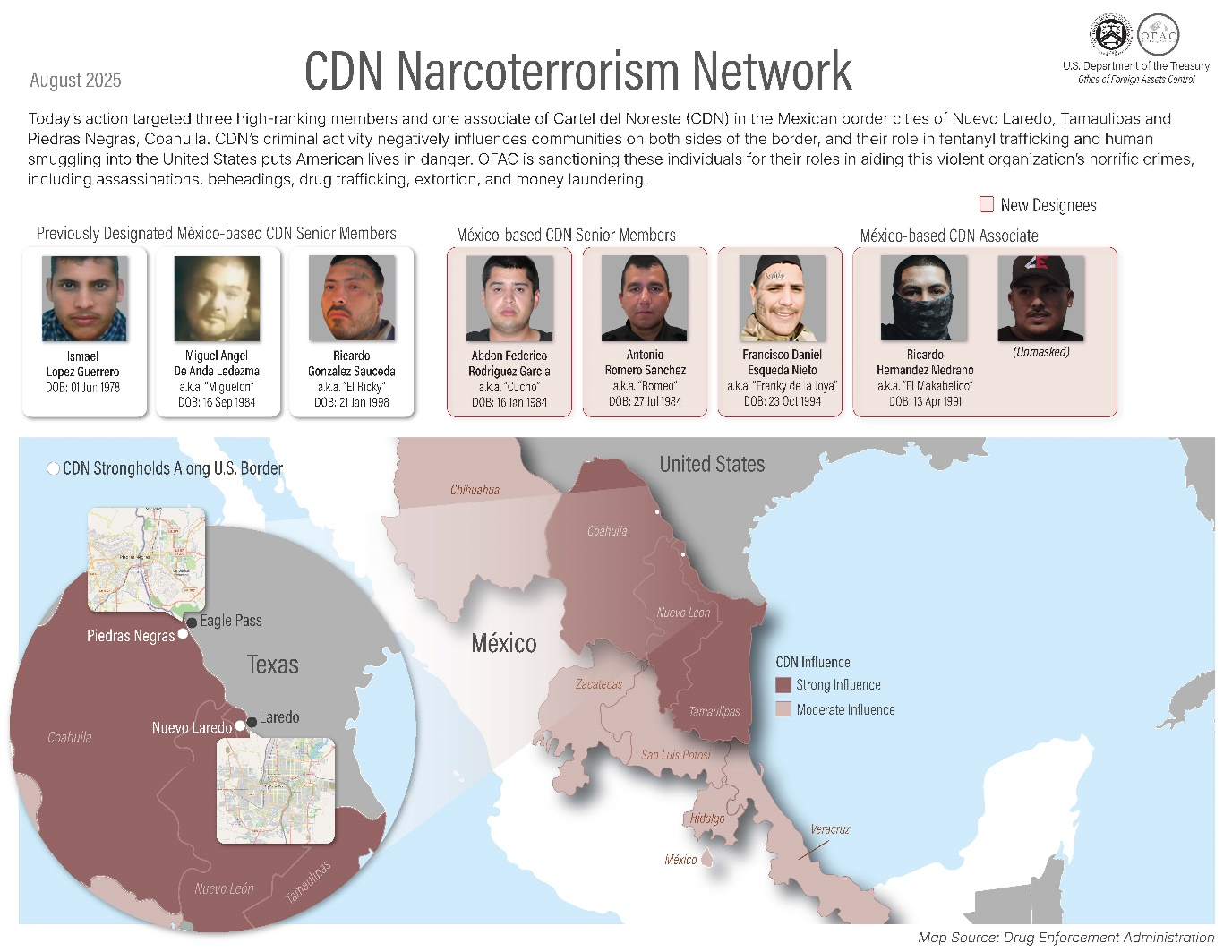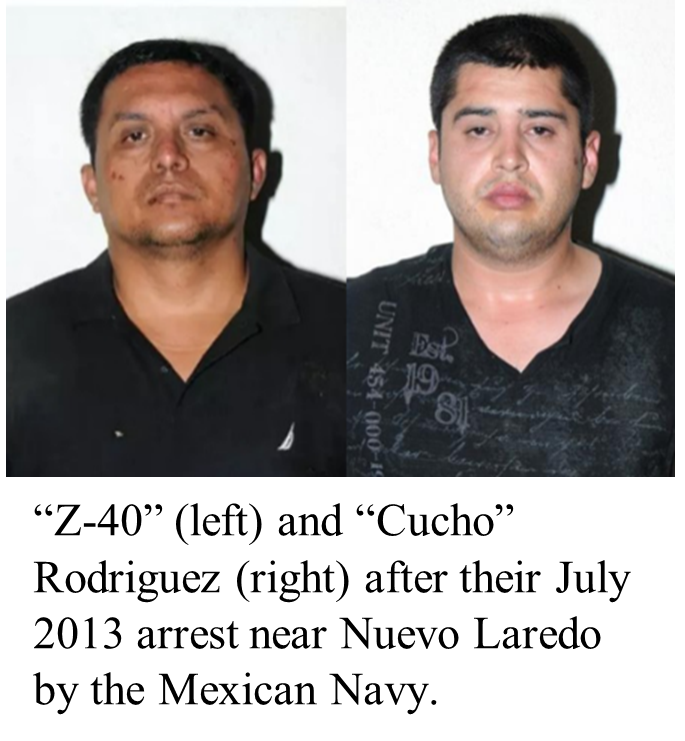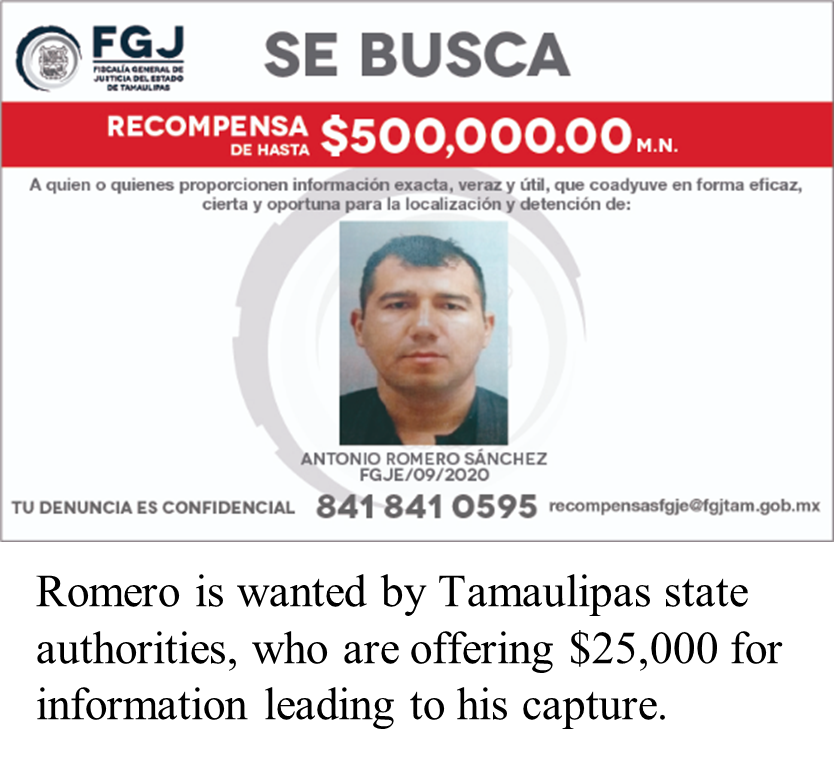WASHINGTON — Today, the U.S. Department of the Treasury’s Office of Foreign Assets Control (OFAC) sanctioned three high-ranking members and one prominent associate of the Mexico-based Cartel del Noreste (CDN), formerly known as Los Zetas. CDN, one of the most violent drug trafficking organizations in Mexico, is a U.S.-designated Foreign Terrorist Organization (FTO) that exerts significant influence over the U.S.-Mexico border, specifically the Laredo, Texas point of entry. CDN’s influence in the Mexican border cities of Nuevo Laredo, Tamaulipas and Piedras Negras, Coahuila, has affected communities on both sides of the border, and the cartel’s role in fentanyl trafficking and human smuggling into the United States puts American lives at risk. The individuals being designated today play key roles in aiding CDN’s horrific crimes, including assassinations, beheadings, drug trafficking, extortion, and money laundering.
“Under President Trump, the Treasury Department will continue to be relentless in its effort to put America First by targeting terrorist drug cartels. These cartels poison Americans with fentanyl and conduct human smuggling operations along our southwest border,” said Secretary of the Treasury Scott Bessent. “Treasury, in close coordination with our law enforcement partners, is committed to a full-frontal assault on the cartels, targeting the leadership and revenue streams that enable their horrific crimes.”
Today’s action targets key individuals that enable Cartel del Noreste’s campaign of violence and narco-terrorism and was coordinated with Homeland Security Investigations (HSI) San Antonio and the Drug Enforcement Administration (DEA).
The action was taken pursuant to Executive Order (E.O.) 14059, which targets the international proliferation of illicit drugs and their means of production, and pursuant to E.O. 13224, as amended, which targets terrorists and their supporters. This is OFAC’s second action targeting CDN’s leadership and affiliates in the last three months. On May 21, 2025, OFAC designated two high-ranking members and arms traffickers of CDN, Miguel Angel de Anda Ledezma and Ricardo Gonzalez Sauceda (Gonzalez).
CARTEL DEL NORESTE
CDN is a violent terrorist organization primarily based in the Mexican states of Tamaulipas, Coahuila, and Nuevo Leon. For decades, CDN has been involved in the trafficking of narcotics and other illicit drugs, including fentanyl, crystal methamphetamine, heroin, marijuana, and cocaine. CDN is also involved in human trafficking, extortion, arms trafficking, and kidnapping for ransom.

CDN is known for operating on both sides of the U.S. border. In June 2025, the Department of Homeland Security’s Immigration and Customs Enforcement (ICE) arrested 72 undocumented immigrants and seized cash, narcotics, and firearms at a CDN-run nightclub during an operation in South Carolina. This unlicensed establishment was involved in drug, weapons, and human trafficking operations.
In addition, CDN utilizes commercial passenger buses to smuggle drugs into the United States. The organization is involved in large-scale human smuggling operations into the United States, often kidnapping and exploiting migrants for the purpose of extortion or forced labor. CDN utilizes drug distribution hubs throughout the state of Texas and has associates, facilitators, and affiliates throughout Texas, Oklahoma, Georgia, and the Midwest.
CDN, previously known as Los Zetas, was identified by the United States as a specially designated foreign narcotics trafficker on April 15, 2009 pursuant to the Foreign Narcotics Kingpin Designation Act (Kingpin Act). On July 24, 2011, Los Zetas was named as a transnational criminal organization (TCO) in the annex to E.O. 13581. On December 15, 2021, OFAC designated CDN pursuant to E.O. 14059. On February 20, 2025, the U.S. Department of State designated CDN as a Foreign Terrorist Organization (FTO) and as a Specially Designated Global Terrorist (SDGT).

SANCTIONING ADDITIONAL HIGH-RANKING CDN MEMBERS

Abdon Federico Rodriguez Garcia (Rodriguez) is the second-in-command of CDN. Rodriguez, also known as “Cucho,” is involved in drug trafficking, money laundering, fuel theft, and extortion on behalf of the organization. Rodriguez is also responsible for ordering executions on behalf of CDN. Rodriguez was previously arrested in 2013 with the infamous CDN leader Miguel Trevino Morales, also known as “Z-40,” and has been a member of CDN since the group operated as Los Zetas.
 Antonio Romero Sanchez (Romero) is a high-ranking member of CDN and has led operations in Piedras Negras, Coahuila and Ciudad Victoria, Tamaulipas on behalf of the organization. Romero, also known as “Romeo,” is a former police officer from Tamaulipas and a violent fugitive. Romero has been linked to numerous executions and beheadings as well as the 2025 attempted assassination of a Nuevo Laredo government official.
Antonio Romero Sanchez (Romero) is a high-ranking member of CDN and has led operations in Piedras Negras, Coahuila and Ciudad Victoria, Tamaulipas on behalf of the organization. Romero, also known as “Romeo,” is a former police officer from Tamaulipas and a violent fugitive. Romero has been linked to numerous executions and beheadings as well as the 2025 attempted assassination of a Nuevo Laredo government official.
 Francisco Daniel Esqueda Nieto (Esqueda), more commonly known as Franky Esqueda, took over CDN’s tactical operations in Nuevo Laredo after the 2025 arrest of CDN leader Gonzalez. Esqueda, also known as “Franky de la Joya,” has been involved in the cartel’s operations since they operated as Los Zetas. Esqueda is responsible for assaulting a member of Mexico’s army—the Secretaría de la Defensa Nacional (SEDENA)—and commanding an attack on a SEDENA helicopter during the arrest of CDN leader Gonzalez.
Francisco Daniel Esqueda Nieto (Esqueda), more commonly known as Franky Esqueda, took over CDN’s tactical operations in Nuevo Laredo after the 2025 arrest of CDN leader Gonzalez. Esqueda, also known as “Franky de la Joya,” has been involved in the cartel’s operations since they operated as Los Zetas. Esqueda is responsible for assaulting a member of Mexico’s army—the Secretaría de la Defensa Nacional (SEDENA)—and commanding an attack on a SEDENA helicopter during the arrest of CDN leader Gonzalez.
Rodriguez, Romero, and Esqueda are being designated pursuant to E.O. 14059 and pursuant to E.O. 13224, as amended, for being owned, controlled, or directed by, or having acted or purported to act for or on behalf of, directly or indirectly, CDN.
SANCTIONING CDN-ASSOCIATED NARCO-RAPPER LAUNDERING FUNDS
 Ricardo Hernandez Medrano, known by his stage names El Makabelico or Comando Exclusivo, is an associate of CDN and a notorious narco-rapper. Hernandez’s concerts and events are used to launder money on behalf of the organization, with 50 percent of his royalties from streaming platforms going directly to the group.
Ricardo Hernandez Medrano, known by his stage names El Makabelico or Comando Exclusivo, is an associate of CDN and a notorious narco-rapper. Hernandez’s concerts and events are used to launder money on behalf of the organization, with 50 percent of his royalties from streaming platforms going directly to the group.
CDN depends on these alternative revenue streams and money laundering methods to boost their criminal enterprise, diversifying their income beyond criminal activity like drug trafficking, human smuggling, and extortion.
Hernandez is being designated pursuant to E.O. 14059 and pursuant to E.O. 13224, as amended, for being owned, controlled, or directed by, or having acted or purported to act for or on behalf of, directly or indirectly, CDN.
SANCTIONS IMPLICATIONS
As a result of today’s action, all property and interests in property of the designated or blocked persons described above that are in the United States or in the possession or control of U.S. persons are blocked and must be reported to OFAC. In addition, any entities that are owned, directly or indirectly, individually or in the aggregate, 50 percent or more by one or more blocked persons are also blocked. Unless authorized by a general or specific license issued by OFAC, or exempt, OFAC’s regulations generally prohibit all transactions by U.S. persons or within (or transiting) the United States that involve any property or interests in property of blocked persons.
Violations of U.S. sanctions may result in the imposition of civil or criminal penalties on U.S. and foreign persons. OFAC may impose civil penalties for sanctions violations on a strict liability basis. OFAC’s Economic Sanctions Enforcement Guidelines provide more information regarding OFAC’s enforcement of U.S. economic sanctions. In addition, financial institutions and other persons may risk exposure to sanctions for engaging in certain transactions or activities involving designated or otherwise blocked persons. The prohibitions include the making of any contribution or provision of funds, goods, or services by, to, or for the benefit of any designated or blocked person, or the receipt of any contribution or provision of funds, goods, or services from any such person.
Furthermore, engaging in certain transactions involving the persons designated today may risk the imposition of secondary sanctions on participating foreign financial institutions. OFAC can prohibit or impose strict conditions on opening or maintaining, in the United States, a correspondent account or a payable-through account of a foreign financial institution that knowingly conducts or facilitates any significant transaction on behalf of a person who is designated pursuant to the relevant authority.
The power and integrity of OFAC sanctions derive not only from OFAC’s ability to designate and add persons to the Specially Designated Nationals and Blocked Persons List (SDN List), but also from its willingness to remove persons from the SDN List consistent with the law. The ultimate goal of sanctions is not to punish, but to bring about a positive change in behavior. For information concerning the process for seeking removal from an OFAC list, including the SDN List, or to submit a request, please refer to OFAC’s guidance on Filing a Petition for Removal from an OFAC List.
To view the chart on the persons designated today, click here.
Click here for more information on the persons designated today.
###
